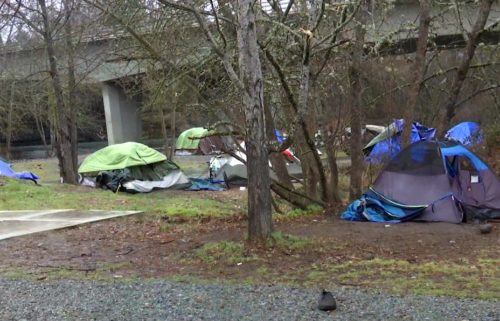Are airplanes at risk from falling space debris like old rockets and satellites?
By Daniel Otis
Click here for updates on this story
Toronto (CTV Network) — As the Earth’s orbit continues to fill with discarded rockets and old satellites, experts say airplanes could be in danger from falling debris.
“There is a real risk,” Aaron Boley, an associate professor in astronomy and astrophysics at the University of British Columbia, told CTVNews.ca. “The uses of space are simply expanding, and as we put large objects in orbit, they come down eventually, and if they’re uncontrolled, that’s a hazard to people on the ground, at sea and in airplanes.”
Boley and a colleague recently authored an article on the subject, and argued that large recent increases in both flights and satellite launches could result in an aviation tragedy unless efforts are made to rein in and better track, regulate and respond to uncontrolled rocket re-entries. Boley’s co-author, UBC political scientist Michael Byers, says there is a 10 per cent chance space debris will cause one or more fatalities over the next decade.
“If it can in principle have a controlled re-entry, it should have a controlled re-entry,” Boley said. “And if it absolutely cannot have a controlled re-entry then there are other things that need to be done so that we have as much information as we can moving forward to make informed decisions and we’re not just suddenly reacting to every new big object that’s coming down. This is what’s happening now.”
Satellites are usually brought to orbit by rockets, which are often then abandoned to eventually plummet back to earth in what are known as uncontrolled re-entries.
“The atmosphere is slowly causing that orbit to decay and at some point it re-enters and you don’t know where along its trajectory it’s ultimately going to re-enter,” Boley explained.
By contrast, controlled re-entries mean that a rocket or spacecraft has a planned return route, like when astronauts come back home from the International Space Station.
“You have things like re-ignitable engines, which many rockets have, and they can direct the trajectory then so it goes into a place, say, in the ocean that is out of the way,” Boley said. “That extra fuel is weight and that then takes away from payload delivery… So it absolutely comes with a cost.”
While there is no known case of rocket or satellite debris hitting a plane, several incidents have raised alarms in the past. In May 2020, a Chinese rocket made an uncontrolled re-entry, littering debris over the Ivory Coast. In Nov. 2022, France and Spain closed parts of their airspace for another Chinese rocket that ended up crashing into the Pacific Ocean.
“So they had this sudden rerouting of aircraft and it caused large delays, there was a large economic hit associated with it,” Boley said.
A look through the Canadian government’s aviation incident database shows possible space debris falling over or near the country too, like on Jan. 18, 2007, when an United Airlines flight “reported a large flaming ball with… debris or wreckage emanating from it” while flying above the arctic.
“It’s largely a Wild West,” Boley said of existing rules and regulations for rocket launches. “When a state launches a satellite and puts something in orbit and lets it come down uncontrolled, it does this thing called exporting risk. So, it lets the rest of the world assume a large fraction of the risk from that particular launch.”
Some countries and aviation groups, such as the Air Line Pilots Association and the International Civil Aviation Organization, have begun to take notice.
In March 2023, UBC’s Outer Space Institute Released its “Montreal Recommendations” which included calls for “global standards” on uncontrolled re-entries at time when there are over seven thousand objects are in low earth orbit.
“Tens of thousands of additional satellites are being licensed, while hundreds of thousands of further satellites are proposed… many of them will reenter Earth’s atmosphere in the years and decades ahead,” it read. “Due to their relative speed of impact, even small or light pieces of debris that may be harmless for people on the ground could fatally damage an aircraft in flight or otherwise necessitate emergency action by its crew.”
The paper was signed by Boley and Byers at UBC as well as retired astronaut and former Canadian cabinet minister Marc Garneau, the inspector general of the French Space Agency, and the U.S. Air Force’s chief of space safety.
Boley hopes clear policies will be created by the international community before an uncontrolled rocket re-entry causes an aviation disaster.
“Ultimately, [we’re] throwing stuff up and letting things just crash down under the paradigm that the earth is so large, we don’t need to worry about it,” Boley said. “But, you know, that’s something that we’ve done multiple times: the oceans are so large, we don’t need to worry about this plastic we’re throwing in; the atmosphere has so much material that we don’t need to worry about all the carbon we’re putting in it. We do this time and time again.”
Please note: This content carries a strict local market embargo. If you share the same market as the contributor of this article, you may not use it on any platform.
CTVNews.caProducers@bellmedia.ca



